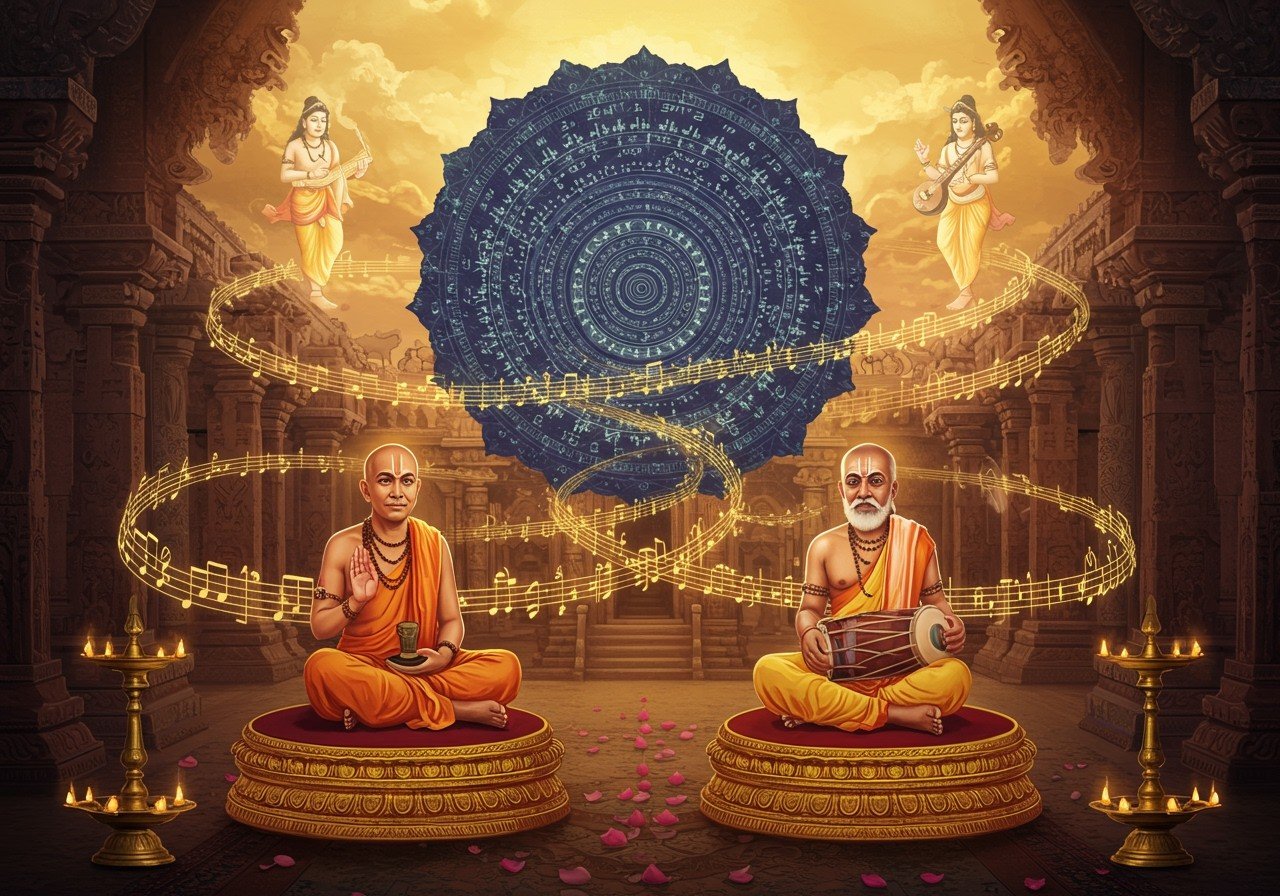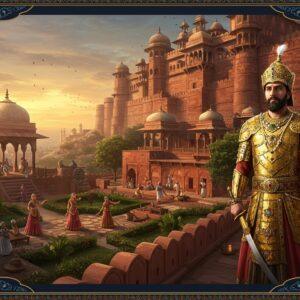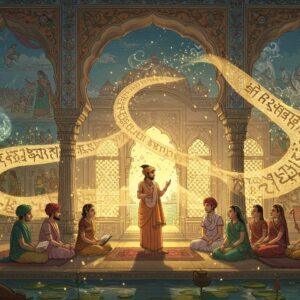
Carnatic music, a rich classical tradition from Southern India, has deep historical roots. It evolved from ancient Hindu texts and traditions, particularly the Samaveda, and is considered a divine art form. Two key figures, Purandara Dasa (1484-1564) and Kanakadasa (1509–1609), are often called the ‘Two Pillars of Carnatic Music.’ They lived during the Vijayanagara Empire, a time of significant cultural growth, and left an enduring legacy on South Indian culture.
Indian classical music saw a division into two distinct styles, Carnatic and Hindustani, around the 16th century. The Hindustani style, prevalent in North India, absorbed Persian and Islamic influences. In contrast, Carnatic music in South India retained its traditional character, largely unaffected by these external influences.
Purandara Dasa: Father of Carnatic Music
Purandara Dasa, widely regarded as the “Father of Carnatic Music,” revolutionized the way Carnatic music is taught. His structured approach, which includes graded lessons like swaravalis, janti swaras, alankaras, and geetas, is still followed today. He introduced the raga Mayamalavagowla as the fundamental scale for music instruction. He masterfully combined bhava (emotion), raga, and laya (rhythm) in his compositions, often incorporating elements of daily life and colloquial language, making his music relatable and accessible. He is credited with composing an astounding 475,000 devotional pieces, although only about 1,000 survive. His signature ankitanama (pen name), “Purandara Vittala,” marked each of his creations.
Explore more about the rich history of Hinduism with these insightful blogs on poojn.in: Hinduism: A Complete History and Origin and Hinduism: A Concise History and Exploration of its Origins.
Kanakadasa: Warrior Turned Saint-Poet
Kanakadasa, a warrior who transitioned into a saint-poet, dedicated his life to Lord Krishna. His devotional compositions, known as Keertanas and Ugabhogas, are essential components of Carnatic music. As a disciple of Vyasatirtha, he significantly contributed to the Bhakti movement in Karnataka. His works are characterized by their simplicity, accessibility, and deep spirituality, often conveying messages of love, equality, and a critique of the rigid caste system prevalent at the time. His compositions, over 300 in number, including notable works like “Namma Janma Phala” and “Hari Bhakti Sudha,” continue to inspire devotion and social reform. Kanakadasa’s origins in the Kuruba community (shepherd) add another layer to his remarkable story.
The Enduring Legacy
Both Purandara Dasa and Kanakadasa’s impact on Carnatic music is profound and lasting. Their compositions are fundamental to Carnatic music education, cherished by musicians and audiences alike. Their devotional themes and musical innovations continue to inspire contemporary composers. Numerous cultural institutions and festivals celebrate their contributions, ensuring their legacy lives on for generations to come. They epitomize the fusion of devotion, musical brilliance, and social commentary, shaping the cultural identity of South India.
How Poojn.in Supports Your Musical Devotion
Poojn.in, India’s leading online store for cultural goods and services, offers a wide selection of products to support your devotional practices. Enhance your puja experience with our high-quality brass bells, traditional puja thalis, pure cotton vastras, authentic kumkum and chandana, and elegant deepa stands. You can also find pure cotton wicks and traditional ghee for naivedya deepa, all crafted to enhance your spiritual journey. Visit www.poojn.in today to explore our complete collection and bring the blessings of tradition into your home.
Looking for divine idols for your home? Poojn.in offers a wide variety of beautifully crafted murtis. Explore our collection: Maa Manasha Murti, Maa Saraswati Murti, and Laddu Gopal Murti. We also offer puja kits for specific occasions like Durga Puja.


